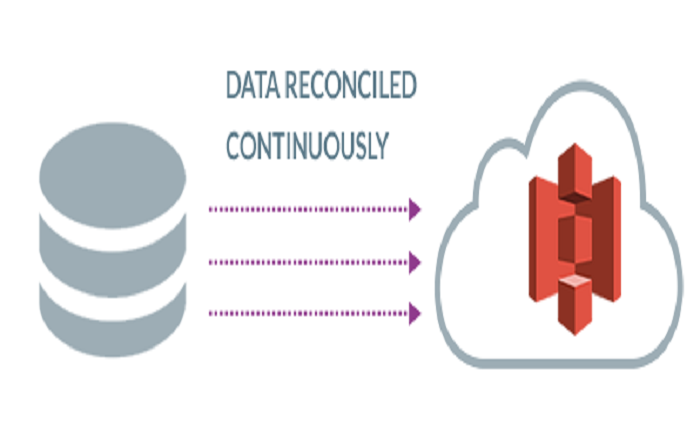New Jersey Solar Incentives & Tax Credits (2023)
New Jersey, also known as Garden State, stands out as a prime example of progressive solar initiatives. Committed to sustainable living and determined to reduce carbon gas emissions, New Jersey has introduced an array of attractive incentives aimed at motivating homeowners to adopt solar energy.
According to the Department of Environmental Protection, New Jersey leads the way in the solar industry, boasting more than 174,692 individual solar installations and securing the eighth position in total installed solar capacity across the nation. This data shows how solar energy has become increasingly affordable in the state, thanks to various incentives such as tax exemptions, net metering, and the federal solar tax credit.
In this guide, we will help you to understand New Jersey Solar Incentives & Tax Credits (2023), providing you with all the information you need to make the most of these opportunities and take a significant step towards a greener and more cost-effective energy future.
Overview of New Jersey Solar Incentives in 2023
New Jersey offers a range of solar incentives in 2023 aimed at making the transition to clean energy more affordable and attractive for residents. Some of them are:
Successor Solar Incentive (SuSI) Program
One noteworthy program is the Successor Solar Incentive (SuSI) Program, which seeks to boost solar energy production in the state. It rewards participants with solar renewable energy certificates, known as SREC-II certificates, based on their solar system’s electricity generation. For every megawatt-hour (MWh) of electricity your solar system produces, you’ll earn one SREC-II certificate. The SuSI program consists of two primary components:
“The Administratively Determined Incentive (ADI) Program” is tailored for residential net-metering and non-residential projects with a capacity of 5 megawatts (MW) or less.
“The Competitive Solar Incentive (CSI) Program” is available to eligible net-metering projects with a capacity exceeding 5 MW with solar batteries or energy storage systems.
Now, here’s the kicker: Despite the substantial benefits, some residents might be concerned about the initial upfront cost of solar panel installation. Don’t worry. Let’s discuss how the Federal Solar Investment Tax Credit (ITC) helps you reduce your solar panel upfront cost in the next section.
Federal Solar Investment Tax Credit
According to the Department of Energy, solar panel systems installed in 2020 & 2021 were eligible for a 26% tax credit. However, in August 2022, the Congress government passed an extension of the Investment Tax Credit, increasing it to 30% for installations conducted between 2022 & 2032. Systems installed on or before December 31, 2019, were also eligible for a 30% tax credit during this period.
The tax credit percentage will subsequently decrease to 26% for systems installed in 2033 and further reduce to 22% for systems installed in 2034. Starting in 2035, the tax credit is set to expire unless renewed by Congress. This tax credit serves to reduce your income tax liability for the year in which you install your PV system, amounting to 30% of your system’s value.
To illustrate this, let’s consider an example: Suppose the cost of your solar panels is approximately $24,000. The Federal Solar Tax Credit of 30% reduces this upfront cost as follows:
System Cost (Federal Tax Credit not included) = $24,000
Federal Tax Credit = 30%
Reduction in the cost of the system = $24,000 * 30% = $7,200
System Cost (Federal Tax Credit included) = $24,000 – $7,200 = $16,800
Solar Sales Tax Exemption
This is one of the best New Jersey solar incentives available, and it’s a testament to the state’s commitment to driving the adoption of clean energy. As per the New Jersey Division of Taxation,
New Jersey imposes a 6.625% Sales Tax on the sale of most physical goods, specified digital products, and certain services unless they are specifically exempt under New Jersey law. This benefit offers a full exemption from the state’s sales tax for all purchases related to solar energy equipment, encompassing a wide range of solar equipment, including those used in passive solar design.
However, it’s important to note that this program does not cover the purchase of insulation aimed at reducing heat loss through walls, roofs, slabs, or foundations by residents who acquire solar energy devices. For more details, please visit the Sales Tax Exemption Administration.
Property Tax Exemption
The Renewable Energy System Property Tax Exemption presents a significant financial benefit for property owners. This exemption is determined by calculating the difference between the property’s assessed value before and after the installation of a renewable energy system.
According to Zillow, homes with solar panels sell for an average of 4.1% more than similar homes without solar power. Importantly, the increase in property value resulting from the installation of the renewable energy system does not impact property tax assessments.
This means that property owners can install renewable energy systems without worrying about their property taxes going up. To be eligible for this exemption, your RES must be certified by the local enforcement agency, ensuring proper installation and functionality to provide clean, renewable energy for the property.
Net-Metering Explained
Net-metering is a policy that enables you to earn money by selling any surplus electricity you generate back to the electrical grid. This program is particularly beneficial for residents of New Jersey since the retail rate for net metering in the state is notably higher than the wholesale rate that power plants receive when they sell electricity to utility companies.
Depending on your energy consumption patterns, participating in this program could lead to cost savings and potential profits. Always prioritize choosing the best solar panel service provider for your home to ensure you can fully enjoy the benefits of net metering.
Conclusion
In 2023, New Jersey solar incentives and tax credits present a compelling opportunity for residents and businesses to embrace renewable energy. With generous financial incentives and tax credits, the state aims to accelerate the adoption of solar power. These incentives not only reduce the upfront costs of solar installations but also promote environmental sustainability, reduce energy bills, and create jobs in the solar industry.
Infinity Energy, as one of the best solar installers in New Jersey, is at the forefront of this sustainable energy revolution. They are dedicated to helping individuals and organizations harness the power of the sun to make a positive impact on the environment and their finances. As a solar expert, they understand the importance of these incentives and their role in making solar energy accessible to all. Their team provides solar panel service and helps reduce your carbon footprint.







